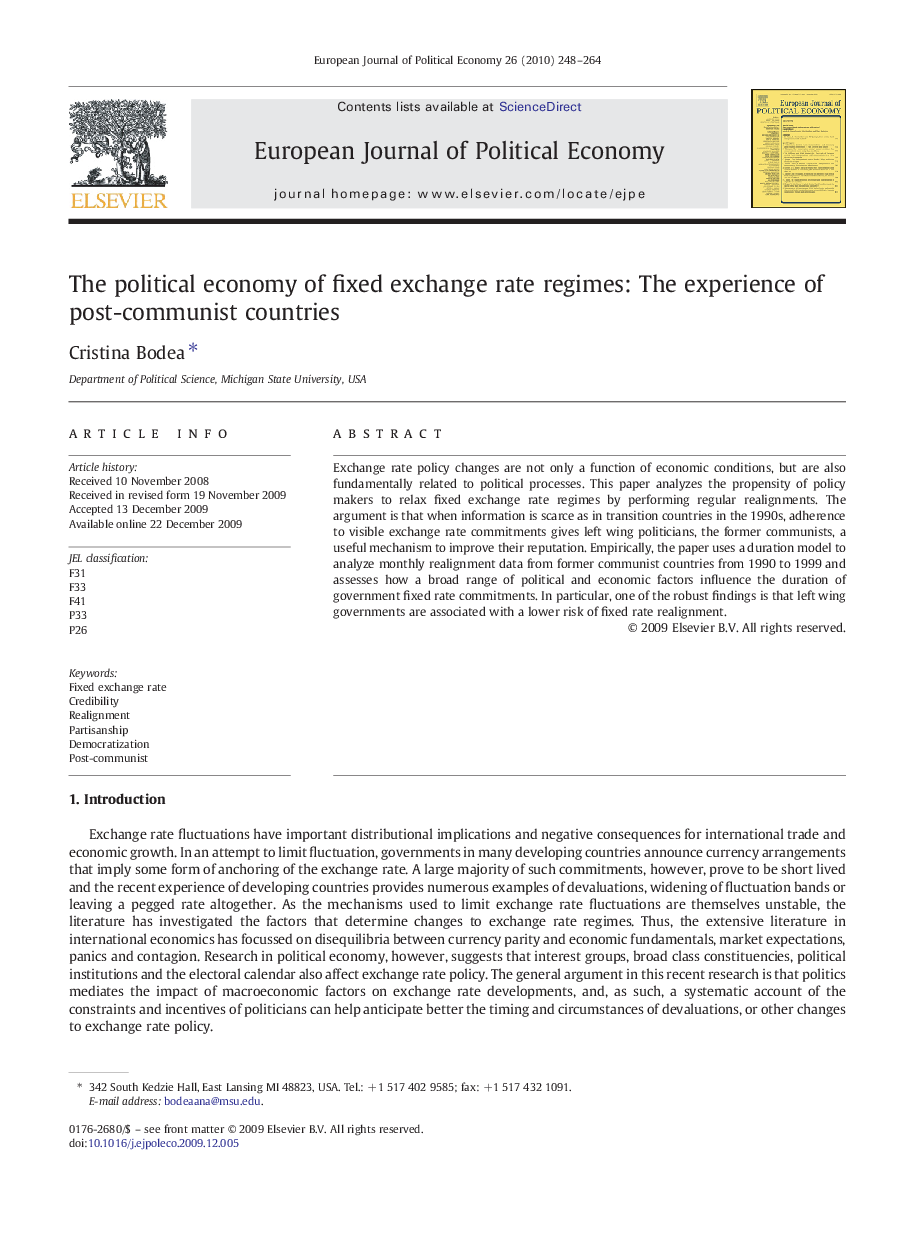| Article ID | Journal | Published Year | Pages | File Type |
|---|---|---|---|---|
| 5068227 | European Journal of Political Economy | 2010 | 17 Pages |
Exchange rate policy changes are not only a function of economic conditions, but are also fundamentally related to political processes. This paper analyzes the propensity of policy makers to relax fixed exchange rate regimes by performing regular realignments. The argument is that when information is scarce as in transition countries in the 1990s, adherence to visible exchange rate commitments gives left wing politicians, the former communists, a useful mechanism to improve their reputation. Empirically, the paper uses a duration model to analyze monthly realignment data from former communist countries from 1990 to 1999 and assesses how a broad range of political and economic factors influence the duration of government fixed rate commitments. In particular, one of the robust findings is that left wing governments are associated with a lower risk of fixed rate realignment.
